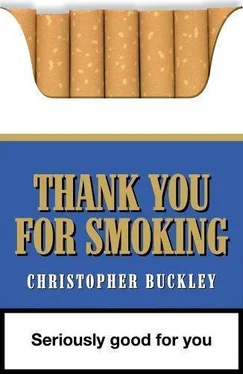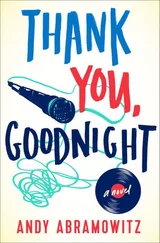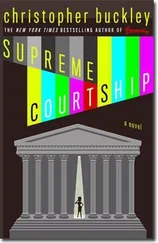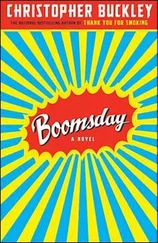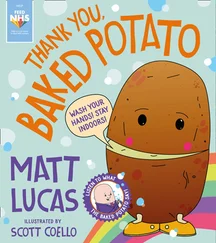"How was your flight?" he asked. "Fine, thank you."
"Jack, would you see that Mr. Naylor travels back to Washington on our plane? What about your hotel?" "He's at the Encomium," Jack interjected.
"Good hotel," Jeff said. "Let us know what we can do." He gestured to a sofa. "May I offer you anything? Coffee? Tea? Mineral water?"
"If it's not too much trouble." "How do you take it?" "Black."
"Black mineral water?" He laughed. "Could we have some black coffee for Mr. Naylor?" He said it into the thin air; there was no one else in the room, and within seconds a woman, a very beautiful woman with long hair, long legs, and a short skirt, appeared with a steaming cup of perfect black coffee.
Jeff said, "Would you like an ashtray?"
"Oh, no," Nick said, "that's okay. I'm. "
"Please, it doesn't bother me in the least. In fact, I enjoy watching people smoke. It's so rare these days."
"Well," Nick said, "that's what I'm here to talk about."
"By the way, I thought you handled the kidnapping extremely well. It must have been an awful experience. But your statements to the media indicated a fineness of spirit. I congratulate you for that."
"Well. "
"I've been thinking about the tobacco industry as a result of your 169 interest in working with us, and I've come to the conclusion that if things continue as they have been, the American tobacco farmer will vanish, and with him, a way of life."
"Yes," Nick said, "we're very concerned about that ourselves."
"So," Jeff said, "let's see what we can do to help these people."
Nick was very impressed. Jeff already had his reason: he wasn't in this for the money — he was in it to save the farmers. Nick had to ask it — out of collegial admiration, he just had to hear the answer: "You don't have any problems with the health question?"
Jeff responded without hesitation: "I don't have the answers on that. I'm not a doctor. I'm just a facilitator. All I do is bring creative people together. What information there is, is out there. People will decide for themselves. I can't make that decision for them. It's not my role. It would be morally presumptuous."
"Yes, right," Nick said. He was dazzled. The man was a titan of ambiguity. He could learn from this man.
"So," Jeff said, "why don't we talk. You're looking for some aggressive product placement."
"Jeff is too modest to mention this," Jack stepped in, "but he was the driving force behind product placement."
"Jack, Mr. Naylor did not fly all the way out here from Washington to listen to you recite my resume."
"Excuse me, Jeff, but I think it's relevant for Nick to know that you pioneered the entire field of product placement. Nick, do you remember how in movies whenever someone drank a beer or soda, or whatever, either the label was generic or it was covered? Then gradually you started to see the labels? And now you can see them so close up you can read the ingredients? Jeff did that. I'm finished."
"That's why we came to ACT," Nick said. "We knew that Mr. Megall was the best."
"Forgive me. I wasn't sure you knew."
"Can we continue, Jack?" Jeff said in a tone of mild impatience. "Or do you want to tell Nick what position I played for the Bruins?" "Continue, please."
"In point of fact," Jeff said, "we were the first to recognize the importance of product placement. What isn't so widely known is, and I know this surprises some people, but at the time, we did not do it to raise more investment."
"You didn't?" Nick said.
"Absolutely not. We wanted to involve the audience more fully in the character. People see their heroes up there on the screen. They want to know everything about them. Take James Bond. He drinks, what is it, a 'medium vodka dry martini shaken not stirred'? Don't you think people want to know what kind of vodka James Bond drinks? I can tell you this," said Jeff, "they will find out what kind of vodka James Bond drinks in the next James Bond movie."
"Aha," Nick said.
"Now, as it happens, the makers of that particular vodka — whatever it ends up being — are more than happy to participate financially in the creative process. But the money was all along a by-product of a creative decision." He grinned. "It's nice when that happens."
Dazzling. Absolutely dazzling. The man made it sound as though product placement was crucial to character development. Call me Ishmael, and hand me a Coca-Cola.
"We were thinking maybe Mel Gibson," Nick said, blurting it out, unable to contain himself any longer.
"That might be difficult," Jeff said. "He just quit. You know, he's got six kids. Not that he couldn't live forever and smoke, but, listen, I know where you're coming from. Mel was a beautiful smoker. The best contemporary smoking I've seen was in Lethal One. He took that smoke in so far you weren't sure it was ever going to come out. And when it did, it was like the breath of a dragon."
"It made me want to start smoking again," Jack said. "I almost did, in fact."
"Remember, however," Jeff said, "that Mel was playing a cop on the edge, someone with some pretty severe psychological problems. What else does he stick in his mouth during that movie? The barrel of his gun. You see, today, when you see people smoking in films, it's generally a sign that there's something wrong with their lives. It's not Humphrey Bogart in Casablanca anymore." Nick shuddered as the image of Peter Lorre flickered past. Jeff continued, "It's Bobby de Niro playing a chain-smoking, tattooed psycho in Cape Fear, Andy Garcia smoking through a hole in his throat in Dead Again, Thelma and Louise lighting up and getting loaded then going out to the parking lot to blow the balls off a rapist. It can get very weird with cigarettes these days. Pat Hingle branding Anjelica with a cigarette in The Grifters. Laura Dern and Nick Cage chain-smoking through Wild at Heart, talking about how their parents all died of lung cancer and cirrhosis. Nick Nolte in Prince of Tides. Definitely a man with problems. Or Harrison Ford in Regarding Henry. He goes into a convenience store to buy a pack of cigarettes and ends up on the floor with his brains splattered all over the place. He didn't even have time to read the surgeon general's warning. What message is being transmitted in these films, do you suppose? That smoking is cool? I think not."
"Exactly," Nick said. "We need a winner. A smoking role model."
"Yes. Set in the 1950s, before all the health stuff got out of hand."
"We'd like it to be contemporary," Nick said. "We want people to feel good about smoking now. Everyone felt good about smoking in the fifties, at least until they read Reader's Digest."
Jeff rested his chin on steepled fingers. "We'd have to move quickly. Principal photography starts in two weeks. How do you feel about Franklin Delano Roosevelt? Talk about a role model. And a very elegant smoker. That holder, almost feminine…"
"Beautiful smoker," Jack said.
"We could fix the script. As a matter of fact. "
"What are you thinking?" Jack asked.
"That the cigarettes could be central. The CIA puts the poison in the cigarettes. The cigarettes become the McGuffin." "Brilliant, "Jack said.
Nick said, "So FDR dies. from smoking?" "Yeah, but not from cancer."
"I think I'd have a hard time selling that to my people."
"Yeah," Jeff smiled, "I can see where that might be a problem. Contemporary is good, but the mind-set is already hardened against it. The L.A. City Council just voted to ban smoking in restaurants here."
"I know," Nick said lugubriously. "Seven thousand restaurants."
"So much for the Constitution. It's late in the game for main-
Читать дальше
